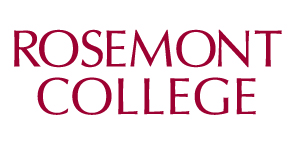MA in Counseling Skills and Outcomes

The Master of Arts in Counseling Program at Rosemont College is committed to providing students a welcoming and engaging academic environment fueled by the diversity of thought and experience and founded on the values of respect towards others, equity for all people, and perseverance in making positive change within the community.
Vital Statistics and Program Evaluation Reports
- Vital Statistics
- Program Evaluations
Skills and Outcomes
Explain the foundational elements of the counseling profession including philosophy, roles, ethics, dispositions, and evidence-based practice to foster a strong professional counseling identity.
Communicate the importance of advocacy and social justice with an awareness of the multicultural issues influencing various populations to promote greater equity within the community.
Identify the developmental needs and experiences of individuals across the lifespan from early childhood through late adulthood and future generations.
Apply developmental practices to highlight the career and lifestyle needs of evolving populations within an ever-changing sociological framework.
Model effective counseling skills, techniques, and theoretical approach to establish and maintain the therapeutic alliance and support the needs of multicultural populations within individual and group settings.
Instill the ability to administer culturally sensitive assessment strategies that identify potential strengths and areas for improvement to ethically engage in diagnosis and treatment planning during crisis and non-crisis situations.
Emphasize the importance of current scholarly research to cultivate the ability to conduct, interpret, evaluate, and report research findings that have the potential to guide evidence-based practices in counseling.
Employ practices and decision-making that aligns with the ethical and legal standards of the profession.
Encourage collaborative engagement with other mental-health professions and constituents within counseling to support the needs of individuals seeking therapeutic services.
Recognize and explore personal biases and limitations through reflection and supervision to enhance professional competency and development.
